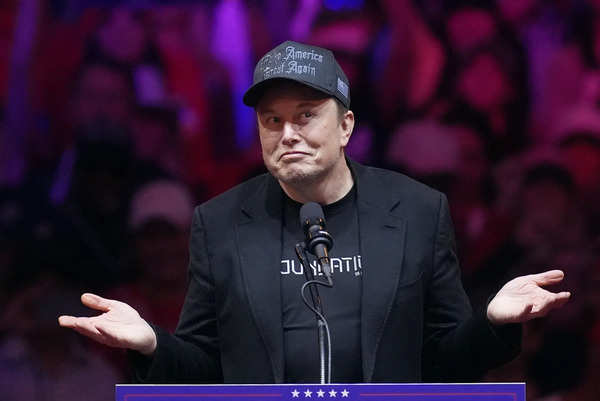The appointment of Sriram Krishnan as a Senior Policy Advisor for Artificial Intelligence in the White House has ignited a heated debate among political factions, particularly in the Trump-supporting Make America Great Again (MAGA) base. The uproar, which combines critiques of Krishnan’s policies, broader immigration reform, and allegations of betrayal of conservative ideals, underscores the tension between nationalism and pragmatism in a globalized economy. This piece explores the key issues fueling the controversy.
Trump’s Surprising Appointment of Sriram Krishnan
In a move that caught many by surprise, former President Donald Trump appointed tech entrepreneur Sriram Krishnan as a special envoy to advance US policy on artificial intelligence (AI). Krishnan’s background as a prominent figure in Silicon Valley, with extensive experience at leading tech companies, was seen by some as a strategic decision to bolster America’s leadership in AI.
However, the appointment quickly became a flashpoint for controversy. Critics from the far-right, particularly those aligned with MAGA ideologies, viewed Krishnan as a symbol of Silicon Valley elitism and a proponent of immigration policies that they claim disadvantage American workers. Trump, long associated with a tough stance on immigration, faced accusations of hypocrisy for aligning with a figure perceived to represent globalist ideals.
Backing the Removal of Green Card Country Caps
Krishnan’s advocacy for immigration reform—particularly his support for removing country-specific caps on green cards—further fueled the backlash. The current US immigration system allocates green cards evenly across all countries, irrespective of the number of applicants. This policy disproportionately affects Indian applicants, who face an average wait time of 11 years due to high demand. Meanwhile, applicants from countries with fewer applicants face little to no delay.
Krishnan, along with tech industry leaders like David Sacks and Elon Musk, has argued that removing these caps is a necessary step toward ensuring a fair and merit-based system. Sacks clarified that Krishnan’s position does not advocate for eliminating all green card caps but rather for addressing inefficiencies that disadvantage highly skilled immigrants from India. “Sriram supports skills-based criteria for receiving a green card, not making the program unlimited,” Sacks emphasized.
MAGA Backlash and Accusations of Betrayal
The backlash from MAGA supporters has been intense and vitriolic. Far-right commentator Laura Loomer took to X (formerly Twitter) to denounce Krishnan’s appointment, labeling him a “career leftist” and accusing him of betraying Trump’s “America First” agenda. Loomer’s criticisms centered on the following points:
- Prioritizing Foreign Workers: Loomer alleged that Krishnan’s policies favor foreign workers over American STEM graduates, thereby undermining domestic job opportunities.
- Tech Industry Bias: She framed Krishnan as a representative of Silicon Valley’s self-serving interests, accusing him of promoting policies that enrich elites at the expense of ordinary Americans.
- Trump’s Decision-Making: Loomer questioned Trump’s judgment in appointing Krishnan, suggesting it signaled a departure from the “America First” ethos.
These critiques resonated with a segment of Trump’s base that remains deeply skeptical of immigration, particularly high-skilled immigration that competes with domestic talent.
Tech Leaders Rally in Support of Krishnan
Prominent tech figures quickly came to Krishnan’s defense. David Sacks and Elon Musk both posted on X to clarify and support Krishnan’s stance. Musk, in his characteristic brevity, commented, “Makes sense,” signaling his approval of Krishnan’s proposals.
Sacks’ rebuttal was more detailed, highlighting the nuances of Krishnan’s position. He emphasized that the removal of country caps on green cards is not about opening floodgates but rather about correcting systemic inequities. Sacks argued that these reforms would help the US retain top global talent and maintain its competitive edge in critical fields like AI and technology. Congressman Ro Khanna also weighed in, lauding Krishnan’s expertise and his contributions to fostering innovation in America. Khanna’s defense framed Krishnan as a patriot committed to strengthening the US economy and ensuring its leadership in cutting-edge industries.
The Role of Racism in the Backlash
While policy disagreements are a natural part of political discourse, much of the criticism directed at Krishnan has been tinged with overt racism. Far-right commentators have used his Indian heritage and immigrant background as grounds for questioning his loyalty to America. This rhetoric mirrors broader xenophobic narratives within certain MAGA circles, which portray immigrants as threats to American identity and economic security.
Tech leaders and progressive commentators have condemned these attacks as baseless and harmful. They argue that such rhetoric undermines the contributions of immigrants who play a pivotal role in driving innovation and economic growth in the US.
The Debate Around H-1B Visas and Economic Competitiveness

The controversy surrounding Krishnan’s appointment also brings renewed attention to the H-1B visa program, which allows US companies to hire highly skilled foreign workers. Critics argue that the program is often abused to displace American workers and suppress wages. Proponents, however, view it as essential for attracting top global talent, particularly in STEM fields.
Krishnan’s stance aligns with the latter perspective. By advocating for reforms that prioritize merit and efficiency, he aims to address the challenges faced by skilled immigrants, particularly those from India, who face long wait times for green cards under the current system.
High-Skilled Immigrants: America’s Competitive Edge
High-skilled immigrants have been instrumental in making America the greatest nation in the world, particularly in fields like technology, healthcare, and engineering. These individuals bring expertise, innovation, and entrepreneurial spirit that have driven the US economy to unparalleled heights. A significant proportion of Silicon Valley’s workforce comprises immigrants, many of whom are founders of startups that have grown into global giants. Companies like Google, Microsoft, and Tesla owe much of their success to immigrant talent.
Beyond entrepreneurship, high-skilled immigrants are vital in keeping the US ahead of global competitors like China. As China invests heavily in AI, quantum computing, and biotechnology, the US must continue to attract and retain the best talent to maintain its technological superiority. Krishnan’s appointment and his advocacy for immigration reform reflect an understanding of this strategic imperative.
The competition with China is not merely economic but also ideological. By fostering an environment that rewards talent and innovation, the US reinforces its commitment to values of opportunity and meritocracy. High-skilled immigrants are at the forefront of this battle, helping to develop cutting-edge technologies that bolster national security and economic growth.
However, systemic inefficiencies in the US immigration system threaten to undermine this competitive edge. Skilled workers from India, for instance, often face decade-long waits for green cards, leading many to consider opportunities in countries like Canada and Australia, which offer more streamlined pathways to permanent residency. Reforming these policies is critical to ensuring that the US remains the destination of choice for the world’s best and brightest.
Tech Bros Fight Back

Elon Musk
The response from Silicon Valley has been assertive and unapologetic. Figures like Jason Calacanis and Sriram Krishnan himself have pushed back against the MAGA narrative, emphasizing the economic contributions of high-skilled immigrants. Calacanis’ posts on X argued that policies like those supported by Krishnan are essential for maintaining America’s competitive edge in a rapidly evolving global economy.
Tech leaders have also highlighted the irony of MAGA’s opposition to Krishnan. They argue that fostering innovation and attracting top talent are core to Trump’s broader vision of “Making America Great Again.” By resisting reforms that address inefficiencies in the immigration system, they contend, MAGA detractors are undermining America’s potential for growth.
A Crossroads for Immigration and Innovation
The uproar over Sriram Krishnan’s appointment and his policy positions reflects deeper tensions within American politics. On one hand, there is a need to adapt immigration policies to a globalized economy that rewards innovation and talent. On the other, there is a segment of the population resistant to change, driven by fears of cultural and economic displacement.
Krishnan’s proposals—including the removal of country-specific green card caps—represent an attempt to strike a balance between merit-based immigration and systemic fairness. Whether these reforms will gain traction remains to be seen. However, the debate underscores the importance of crafting policies that reflect America’s values of opportunity and inclusivity while addressing the practical challenges of a competitive global landscape.
As the discourse unfolds, the role of leaders like Krishnan will be pivotal in shaping the future of US immigration policy and ensuring the nation remains a beacon for talent and innovation worldwide.
